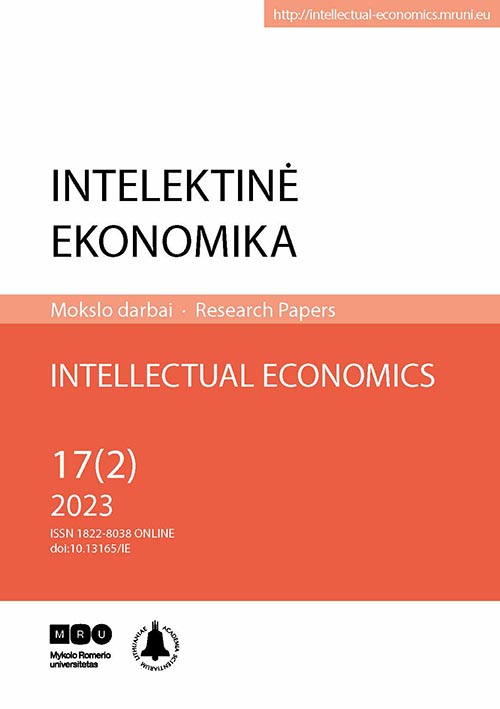The impact of globalization on income inequality: the mediating effect of intellectual potential
##plugins.themes.bootstrap3.article.main##
Abstract
Purpose. This research aims to revisit the relationship between globalization and income inequality while improving on previous research. It also considers how technological advancements and human capital can alter this relationship in countries with different income levels worldwide.
Methodology. This research is based on panel data regression models with multiplicative terms where, after controlling for other important inequality factors, different types of globalization are regressed using two alternative measures of income inequality. Multiplicative terms allowed us to analyze the heterogeneity of the globalization-inequality nexus, i.e., how it changed over the distribution of the moderating factors: technological advancements and human capital.
Findings. The results show that different types of globalization impact income inequality differently: trade globalization reduces income inequality in some cases, while financial globalization can increase it. Education proved to moderate the effect of globalization on reducing income inequality; technological advancement, on the other hand, stimulates the impact of globalization in terms of increasing income inequality.
Originality. This paper differs from previous research by focusing on multiple aspects of globalization, using additional TOP20/BOT20 estimates to measure income inequality and to explore the differences between the income inequality/globalization relationship based on the effects of education and technological advancement on countries with different income levels.
Methodology. This research is based on panel data regression models with multiplicative terms where, after controlling for other important inequality factors, different types of globalization are regressed using two alternative measures of income inequality. Multiplicative terms allowed us to analyze the heterogeneity of the globalization-inequality nexus, i.e., how it changed over the distribution of the moderating factors: technological advancements and human capital.
Findings. The results show that different types of globalization impact income inequality differently: trade globalization reduces income inequality in some cases, while financial globalization can increase it. Education proved to moderate the effect of globalization on reducing income inequality; technological advancement, on the other hand, stimulates the impact of globalization in terms of increasing income inequality.
Originality. This paper differs from previous research by focusing on multiple aspects of globalization, using additional TOP20/BOT20 estimates to measure income inequality and to explore the differences between the income inequality/globalization relationship based on the effects of education and technological advancement on countries with different income levels.
##plugins.themes.bootstrap3.article.details##
Section
Articles
Authors contributing to Intellectual Economics agree to publish their articles under a Creative Commons Attribution-NoDerivatives 4.0 International Public (CC BY-NC-ND) License, allowing third parties to share their work (copy, distribute, transmit) and to adapt it, under the condition that the authors are given credit, and that in the event of reuse or distribution, the terms of this licence are made clear.








